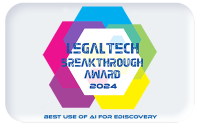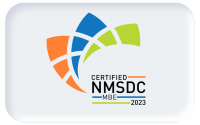The Rabiej Litigation Law Center recently hosted a summit on “Discovery Issues Unique to Mass-Tort MDLs” at Charleston Law School that served as a key gathering for judges, attorneys, and experts in the field of mass-tort multidistrict litigation (MDL), class actions, and eDiscovery. The conference continues the work initiated by John Rabiej at Duke Law School‘s Center for Judicial Studies and George Washington University Law School’s Complex Litigation Center.
The event provided a forum for discussing best practices, guidelines, and judicial management strategies for handling MDLs. The MDL Conference facilitated collaboration between the bench and bar that will influence the future of civil litigation and discovery practices.
The Impact of MDLs on the Courts
MDL litigation strains the federal judiciary, with mass-tort MDLs comprising nearly 50% of all federal civil cases. This overwhelming concentration of cases creates a host of administrative, procedural, and resource challenges for judges and court systems. The absence of uniform procedures across different MDLs leads to inefficiencies, as judges must tailor case management approaches for each litigation. Furthermore, MDL cases generate massive volumes of electronically stored information (ESI), leading to excessive discovery costs and time-consuming document reviews. Hence, continued efforts, such as the Rabiej MDL Conference, are essential to ensure the efficient, fair, and cost-effective resolution of MDL cases.
The MDL Conference directly challenged the status quo in MDL eDiscovery by addressing long-standing inefficiencies, proposing new discovery validation methods, and advocating for a shift from exhaustive document production to targeted core discovery. The conference featured five panels focused on controlling eDiscovery, electronically stored information, deposition, privilege logs, and experts.
Controlling eDiscovery
Bill Johnson, TCDI’s Founder and CEO, was a panelist on the Controlling eDiscovery discussion, where he commented on the use and limitations of artificial intelligence (AI) in improving eDiscovery efficiency. Johnson stated that he was not surprised by the vendor and media hype. Johnson said, “AI is helpful but not quite there yet as the ultimate solution.” He indicated that he was very excited about the staggering pace of change, but remained guarded due to the costs.
The Future of MDLs
The proposals emerging from the MDL Conference will likely influence judicial best practices moving forward. As the legal community continues to navigate the increasing complexity of MDLs, events like this play a pivotal role in shaping the future of mass-tort litigation.
The MDL Conference was not just a forum for discussion—it was a catalyst for meaningful change in the approach to MDL case management and discovery.

Tim Opsitnick
Author
Share article:
Timothy M. Opsitnick is at the forefront of practitioners addressing issues involved in the security and discovery of electronically stored information. His consulting focuses on electronic discovery, information governance, cybersecurity, computer forensics, and cloud-based document management systems. In addition, Tim has served as an expert witness and special master.





